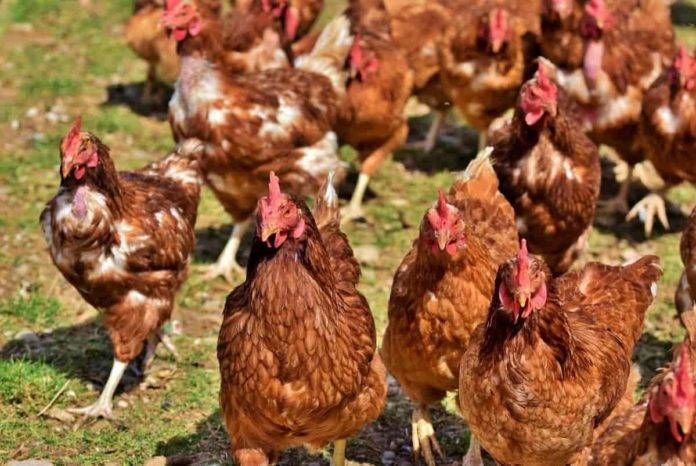Pulp Molding for Egg Chickens and the Path to Eco-Friendly Farming
As the world grapples with environmental challenges, the agriculture sector is undergoing a transformative shift towards sustainable practices.

As the world grapples with environmental challenges, the agriculture sector is undergoing a transformative shift towards sustainable practices. Pulp molding, a versatile and eco-friendly method, has emerged as a key player in the poultry industry, particularly for housing egg-laying chickens. In this comprehensive exploration, we will delve into the intricacies of paper pulp moulding machine
, examining its environmental benefits, applications in chicken farming, and the transformative impact it holds for eco-friendly egg production.
The Poultry Industry Challenge:
Traditional Materials and Environmental Impact:
The traditional materials used in poultry farming, such as plastic and Styrofoam, have raised concerns due to their environmental impact. Disposal of non-biodegradable materials poses challenges, contributing to pollution and resource depletion.
The Need for Sustainable Alternatives:
Recognizing the environmental footprint of traditional poultry housing materials, there is a growing demand for sustainable alternatives that not only provide a conducive environment for egg-laying chickens but also align with eco-friendly farming practices.
Pulp Molding Technology:
The Pulp Molding Process:
Pulp molding, also known as molded fiber or molded pulp, involves the use of recycled paper or cardboard as the primary raw material. The process typically includes:
Pulping:
Breaking down recycled paper into a pulp using water or a combination of water and chemicals.
Molding:
Shaping the pulp into specific forms using molds or dies.
Drying:
Allowing the molded pulp products to dry and solidify into the desired form.
Environmental Benefits of Pulp Molding:
Recycled Content:
Pulp molding utilizes recycled paper, contributing to waste reduction and resource conservation.
Biodegradability:
Pulp molding products are biodegradable, breaking down naturally and reducing the environmental impact of waste.
Renewable Resource:
The raw material, paper, is derived from renewable resources like wood pulp, making it a sustainable choice.
Applications in Chicken Farming:
Egg Cartons:
Biodegradable Egg Packaging:
Pulp molding is commonly used to produce biodegradable egg cartons, providing a sustainable alternative to plastic or foam.
Protection and Ventilation:
Pulp molded egg cartons offer protection to eggs during transport, while the porous nature of the material allows for ventilation, preventing moisture buildup.
Poultry Housing:
Nesting Boxes:
Pulp molding can be employed to create nesting boxes for egg-laying chickens. These boxes provide a comfortable and hygienic space for hens to lay eggs.
Biodegradable Coops:
Entire poultry coops can be constructed using pulp molding, providing a sustainable and eco-friendly shelter for chickens.
Environmental and Agricultural Benefits:
Waste Reduction:
Closed-Loop System:
Pulp molding supports a closed-loop system by utilizing recycled paper as the primary raw material, reducing the need for new resources.
Minimal Environmental Impact:
The biodegradability of pulp molding products ensures minimal environmental impact, especially when compared to non-biodegradable alternatives.
Improved Chicken Welfare:
Comfort and Hygiene:
Pulp molding provides a comfortable and hygienic environment for egg-laying chickens, contributing to their overall welfare and productivity.
Natural Insulation:
The insulating properties of molded pulp offer a natural insulation for poultry housing, maintaining optimal temperature conditions.
Sustainable Egg Production:
Eco-Friendly Packaging:
Biodegradable egg cartons made through pulp molding contribute to sustainable egg packaging, aligning with consumer preferences for eco-friendly choices.
Market Demand:
The growing awareness of environmental issues has led to increased market demand for sustainably produced eggs, driving the adoption of eco-friendly farming practices.
Real-world Implementations:
Industry Adoption:
Large-scale Farms:
Some large-scale poultry farms have adopted pulp molding for egg cartons and poultry housing, showcasing the scalability and feasibility of this technology.
Local and Small Farms:
Pulp molding is not limited to large operations; local and small farms are also embracing this technology to align with sustainable and eco-friendly practices.
Certification Programs:
Eco-friendly Certifications:
Certification programs that recognize eco-friendly farming practices often consider the use of sustainable materials like pulp molding in their criteria.
Consumer Awareness:
Consumer awareness campaigns on the benefits of sustainably produced eggs packaged in pulp molded cartons contribute to the adoption of this technology.
Challenges and Considerations:
Technological Challenges:
Material Durability:
Ensuring the durability of pulp molding materials in challenging agricultural environments requires ongoing research and development.
Water and Chemical Usage:
Efficient water and chemical usage in the pulping process is essential to minimize environmental impact.
Cost Considerations:
Initial Investment:
The initial investment in pulp molding equipment may pose a challenge for smaller farms, requiring careful cost-benefit analysis.
Market Perception:
Convincing consumers about the benefits of pulp-molded products and their role in sustainable farming may require marketing efforts and education.
The Future of Pulp Molding in Chicken Farming:
Research and Innovation:
Material Innovations:
Ongoing research aims to enhance the material properties of pulp molding, making it even more durable and suitable for poultry farming.
Advanced Pulp Molding Technology:
Technological advancements in pulp molding machinery continue to improve efficiency and scalability.
Collaboration and Awareness:
Industry Collaboration:
Collaborations between the pulp molding industry and poultry farming stakeholders can lead to tailored solutions and broader adoption.
Consumer Education:
Raising awareness among consumers about the environmental benefits of pulp molding can drive demand and encourage sustainable choices.
Policy Support:
Incentives for Sustainable Practices:
Government incentives and policies supporting sustainable farming practices, including the use of eco-friendly materials like pulp molding, can accelerate adoption.
Regulatory Standards:
Establishing regulatory standards for eco-friendly packaging and farming practices can provide a framework for industry-wide adoption.
Conclusion:
Pulp molding stands at the forefront of sustainable solutions for egg chicken farming, offering a promising alternative to traditional materials with a reduced environmental footprint. By leveraging recycled paper and adopting biodegradable packaging, poultry farmers can contribute to waste reduction, improved chicken welfare, and sustainable egg production. As research and adoption continue, the path from pulp molding to eco-friendly chicken farming holds immense potential for transforming the poultry industry into a beacon of sustainability, fostering a more harmonious relationship between agriculture and the environment.
